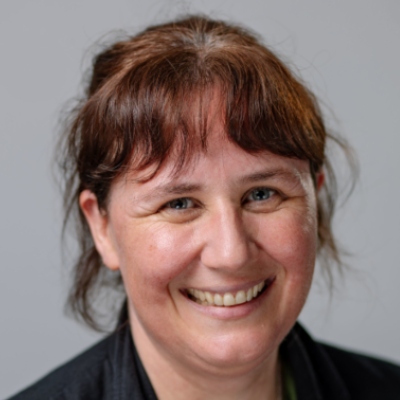RESEARCH: BONE HEALTH AND OSTEOPOROSIS
 How did you get into research?
How did you get into research?
I have always been a curious person and loved my research project and dissertation as an undergraduate radiography student. This whet my appetite for research and then working as a Nuclear Medicine Radiographer at Guy’s Hospital exposed me to a strong research culture, which made research feel real and exciting. I went on to apply for a PhD at King’s College London as a result, and was lucky enough to be awarded this.
What do you enjoy about research?
There are many parts of research, which I enjoy from co-creating projects with patients through to the data analysis to see the results. I enjoy working with research participants and still have the pleasure of being hands on and scanning or taking bloods from some participants. Feeling that I am able to ultimately make a difference to practice and potentially people’s lives is a good driver to continue.
What was the most difficult aspect of doing your PhD?
I dipped my toe into the world of genetics through Twin studies as part of my PhD and learning to use Mx for genetic modelling was a steep learning curve! However, the Twin statisticians were always available to help me and I got there in the end.
What difference has your research training and experience made to your career?
After completing my PhD I was fortunate to be employed as a postdoctoral researcher at King’s College, London and continued these posts until I moved into my first lecturer post at the University of Exeter. Here I’ve moved up the scale to Associate Professor and have brought in over £3M in research income and published over 70 original research papers. I would say my PhD has made an enormous difference to my career.
How has research changed your clinical practice?
I have become an expert in DXA and osteoporosis and continue to undertake research in this field, and am part of the team delivering the national training scheme in bone densitometry for the Royal Osteoporosis Society (ROS). I am a DXA reporting radiographer and currently part of a team delivering a project funded by the ROS about how we optimise DXA reports to ensure patients commence treatment when this is appropriate. I am always exploring the evidence base and where this is lacking, consider projects to address this.
What has made a difference to progressing your research career?
Having a strong foundation from my PhD and post-doctoral positions really set me up well to progress my research career. Learning to ride the roller-coaster of rejections and acceptances for papers and grants is also important and having a strong team of colleagues around me makes things easier. Finding good collaborators whom I work well with has been essential to progressing my research and that of others I work with.
Where do you see your clinical academic career going over the next five years?
In the next 5 years I would like to progress to Professor and to build my research group further. I aim to support my post-doctoral researchers to apply for fellowships and to support their research development as the future research leaders in our field.
Prof Karen Knapp, Associate Professor in Musculoskeletal Imaging at the University of Exeter and Head of Medical Imaging k.m.knapp@exeter.ac.uk
Useful links
Contact us
The CATO Team and Radiographers Incubator work on a Hybrid model, combining days in the office with days working from home – the best way to reach us is by email.
cato@imperial.ac.uk
radresearch@imperial.ac.uk
+44 (0)20 3313 7397



